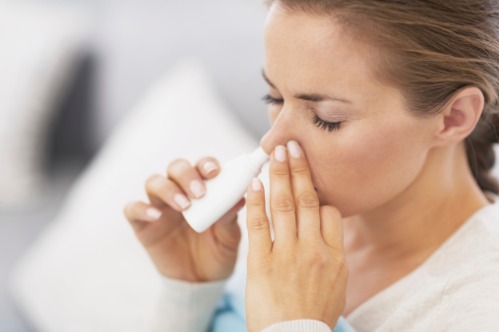
Asthma in Athletes: How to Manage it and Stay Active
Asthma is a common chronic respiratory disease that affects millions of people worldwide. Athletes are not immune to this condition, and in fact, asthma in athletes is relatively common. For athletes of all ages, managing asthma is crucial, as the condition can significantly impact sports performance and athletic achievements. However, with proper management, individuals with asthma can continue to engage in sports and physical activities.
Understanding Asthma in Athletes
Asthma is often diagnosed in childhood, meaning that many athletes have been dealing with the condition since they were young. However, asthma can also develop in adulthood or persist into adulthood. For athletes, the condition is treated similarly to other populations, with a focus on controlling symptoms and improving their overall quality of life.
Exercise-induced Asthma
Exercise-induced asthma is a very common form of asthma, and it is caused by breathing in cold, dry air or exercising intensely. Symptoms can include:
- Coughing
- Wheezing
- Shortness of breath
- Chest pain or tightness
Although exercise-induced asthma most commonly affects people who have previously been diagnosed with asthma, it can also affect elite, high-level athletes who have never been diagnosed with asthma. This is likely due to the physical intensity of their training regimen.
Managing Asthma in Athletes
The best way to manage asthma in athletes is to create an individualized plan, which should include:
Medication: Most athletes who have asthma will use medication, such as an inhaler, to help manage their symptoms. It’s important to talk to a doctor or healthcare professional to determine which medication is right for each individual.
Warm-up: Proper warm-up exercises can help reduce the risk of an asthma attack by loosening up tight muscles and promoting adequate airflow through the lungs.
Cool-down: Cool-down exercises should become part of an athlete’s regular routine, as they can help prevent the buildup of lactic acid in the lungs and reduce the risk of an asthma attack.
Knowledge: Athletes need to be aware of their own individual triggers and warning signs of an asthma attack so that they can act quickly and appropriately.
Staying Active as an Athlete with Asthma
Despite the challenges, athletes with asthma can still enjoy sports and physical activity. In fact, exercise can be beneficial for individuals with asthma, as it can improve lung function and overall fitness.
To stay active safely, athletes with asthma should:
- Communicate with their coaches and teammates about their condition
- Have quick-relief medication on hand
- Avoid overexertion
Can Kids and Teens with Asthma Play Sports?
Kids and teens with asthma can absolutely play sports as long as their asthma is managed. It’s important for young athletes with asthma to understand the importance of taking their medications and learning how to recognize the warning signs of an asthma attack. It’s also essential for coaches to be aware of any players on the team who have asthma so they can provide extra support if needed.
Playing sports can help children with asthma stay active and fit, and it can also strengthen their breathing muscles to help the lungs work better. With proper management, kids and teens with asthma can participate in sports and physical activities just like everyone else.
Take Control of Your Asthma Symptoms
At Northeast Allergy, our team of allergy and immunology experts is dedicated to helping you manage your asthma symptoms so that you can stay active. Our experienced providers are committed to providing personalized care and creating individualized treatment plans for each patient.
If you have asthma or experience exercise-induced asthma symptoms, Northeast Allergy is here to help. Contact us today to schedule an appointment.



